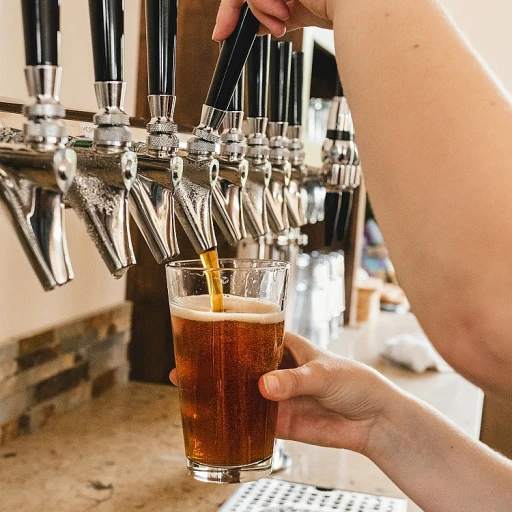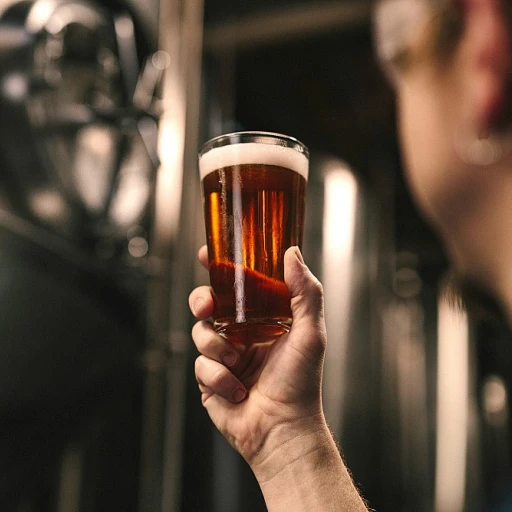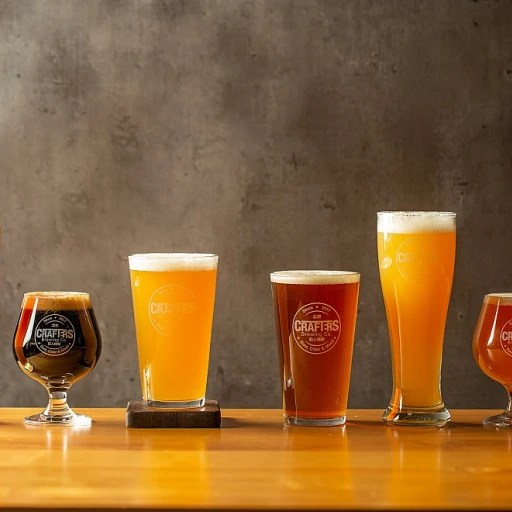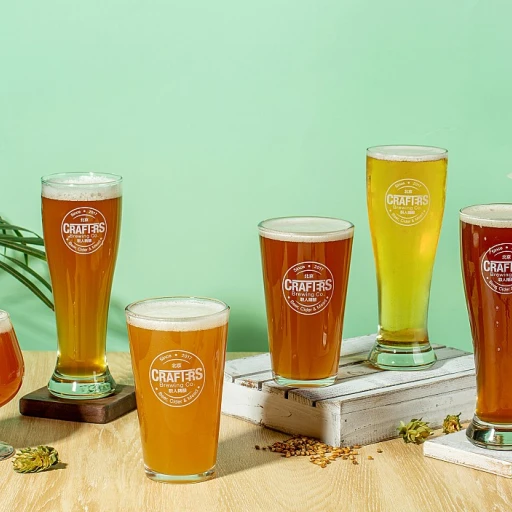
Maize beer’s origins and cultural impact
Ancient roots and community traditions
Maize beer has a fascinating history that stretches back to ancient civilizations in the Americas. Long before barley became the standard grain for brewing in Europe, indigenous peoples in South and Central America were already crafting unique beers from maize, also known as corn. These early brews, like the well-known chicha, were more than just beverages—they played a central role in social and religious ceremonies, bringing communities together for celebrations, rituals, and daily life.
Maize beer’s influence across continents
As maize spread from the Americas to other parts of the world, its use in brewing evolved. In Africa, maize became a key ingredient in traditional beers, while in North America, it influenced the development of classic styles such as cream ale and American adjunct lagers. Each region adapted maize beer to local tastes and customs, creating a rich tapestry of flavors and brewing techniques.
For those interested in how monastic brewing traditions shaped beer culture in Europe, you might enjoy reading about the rich heritage of Affligem beer.
How maize changes the brewing game
Maize in the brewhouse: what sets it apart?
Maize, or corn, brings a unique twist to the brewing process compared to traditional barley or wheat. Its use is not just a matter of tradition—it actively shapes the beer’s character and brewing techniques.
- Lighter body and color: Maize tends to lighten both the color and the mouthfeel of beer, making it crisp and refreshing. This is why many maize-based beers are so easy to drink, especially in warmer climates.
- Fermentable sugars: Corn provides a high amount of fermentable sugars, which can increase alcohol content without adding heaviness. This makes maize a favorite for brewers looking to balance strength and drinkability.
- Distinct flavor profile: While subtle, maize imparts a gentle sweetness and sometimes a faint, toasty note. This sets maize beers apart from their barley-based cousins, as you’ll see when exploring different beer styles and flavors shaped by maize.
- Brewing challenges: Maize requires special handling in the brewhouse. It often needs to be cooked or flaked before mashing, and brewers must adjust their process to avoid a cloudy or overly thin beer.
Maize’s influence on brewing is a story of adaptation and creativity. From ancient traditions to modern craft, brewers have found ways to let this grain shine. If you’re curious about how brewing culture and beer appreciation have evolved, you might enjoy reading about beer’s cultural icons and their impact on the world of beer.
Ingredients that make maize beer stand out
What goes into a maize beer?
Maize beer stands apart from other brews thanks to its unique blend of ingredients. While traditional beers rely heavily on barley or wheat, maize beer uses corn as a primary grain. This substitution does more than just change the flavor—it influences the texture, color, and even the aroma of the final product.
- Maize (corn): The star of the show, maize brings a gentle sweetness and a lighter body to the beer. Depending on the variety—yellow, white, or even blue corn—the flavor and color can shift noticeably.
- Malted barley: Often used alongside maize, malted barley helps with fermentation and adds complexity to the taste profile.
- Adjunct grains: Some brewers include rice, wheat, or oats to balance the mouthfeel and enhance the foam.
- Hops: While not always traditional in ancient recipes, modern maize beers often use hops for bitterness and aroma, complementing the corn’s natural sweetness.
- Yeast: The choice of yeast can highlight fruity or spicy notes, depending on the desired style.
- Water: The mineral content of the brewing water can subtly affect the final taste, as with all beers.
Maize’s role in brewing is more than just a substitute for barley. It can lighten the body, add a crisp finish, and introduce flavors ranging from honey-like sweetness to earthy undertones. This versatility is why maize beer has evolved into so many regional styles, as mentioned earlier in the article.
For those interested in how different ingredients shape iconic beers, you might enjoy reading about the ingredients behind Saint Bernardus beer and how they contribute to its celebrated character.
Beer styles and flavors shaped by maize
Unique beer styles influenced by maize
Maize has inspired a fascinating range of beer styles across the globe. Traditional maize beers like chicha from South America are brewed with locally grown corn, often using ancient methods that highlight the grain’s earthy sweetness. In North America, maize found its way into pre-Prohibition lagers, giving them a lighter body and crisp finish. Today, craft brewers experiment with maize in everything from cream ales to innovative IPAs, creating beers with distinctive flavors and approachable profiles.
Flavor profiles shaped by corn
Maize imparts a gentle sweetness and a smooth, mellow mouthfeel. This can balance out bitterness from hops or roasted notes from darker malts. Expect flavors ranging from subtle honey and biscuit to a delicate, almost popcorn-like aroma. The use of maize often results in beers that are easy-drinking and refreshing, making them popular choices in warm climates or as session beers.
- Cream ales – Light, smooth, and slightly sweet, these American classics often use maize for a crisp finish.
- Chicha – Traditional South American corn beer, sometimes flavored with fruits or spices, offering a rustic and tangy profile.
- Pre-Prohibition lagers – Incorporate maize for a lighter body and subtle sweetness, setting them apart from modern lagers.
- Modern craft styles – Brewers use maize in IPAs, stouts, and sours to add complexity and soften strong flavors.
What to expect when tasting maize beers
When sampling maize beers, look for a clean, crisp finish and a touch of sweetness. The color can range from pale gold to amber, depending on the style and other malts used. Maize often lightens the body, making these beers especially refreshing. Whether you are enjoying a traditional chicha or a contemporary craft brew, maize brings a unique twist to the world of beer.
Buying, tasting, and legal terms to know
Where to find maize beers and what to look for
Maize beers are gaining popularity, but they can still be a bit elusive depending on your location. Here are some tips for sourcing and enjoying these unique brews:
- Specialty bottle shops: Look for craft beer stores that feature international selections or local breweries experimenting with heritage grains.
- Online retailers: Many online beer shops offer maize-based beers, especially from regions where they are traditional.
- Local breweries: Some craft breweries release seasonal or limited-edition maize beers—check their tap lists or social media for announcements.
Tasting maize beer: what to expect
When tasting maize beer, pay attention to its distinct qualities. Maize often brings a gentle sweetness and a lighter body compared to all-barley brews. You might notice:
- Subtle corn aroma—sometimes reminiscent of fresh tortillas or popcorn
- Smooth, crisp mouthfeel—maize can lighten the texture and make the beer more refreshing
- Balanced flavors—expect less bitterness and a touch of sweetness, depending on the style
Legal and labeling terms for maize beers
Depending on where you are, maize beer might be labeled in different ways. Here are a few terms to keep in mind:
- Chicha—traditional maize beer from South America, often homemade and sometimes unfiltered
- Adjunct lager—refers to lagers brewed with maize or other grains in addition to barley
- American corn beer—a term used by some craft breweries for maize-forward recipes
Always check the ingredient list or ask the brewer if you’re unsure whether a beer contains maize. This will help you find the flavors and styles you’re looking for, and avoid surprises if you have dietary restrictions.













